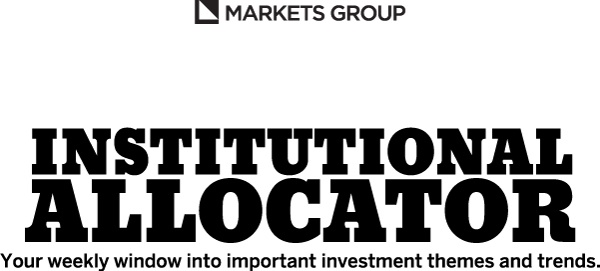Institutional Allocator included NEPC’s Cathy Konicki and its latest Endowments & Foundations survey in a recent article. Read the full story below.
Endowments and foundations are concerned about how a trade war between China and the U.S. could affect their investment strategies, according to a report released today by Boston-based consulting firm NEPC.
A whopping 78% of the 47 endowments and foundations that participated in the survey are moderately concerned about the prospect of a trade war between the two countries, with 11% indicating their level of concern is “very high.” Another 11% say that they are not concerned about it, according to the report.
“Of the 89% of survey participants who said they had some level of concerns about a trade war, most have allocations to China and most of them have it through a broad emerging market strategy,” said Cathy Konicki, partner, head of NEPC’s E&F practice group. The potential trade war plays into their overall concerns about the increased volatility in the market, she said. “In fact, their number one concern is volatility, driven by these types of geopolitical events happening, Konicki emphasized. That said, “They have not made any changes to their portfolios in response to the volatility and are instead choosing to take more of long-term approach,” Konicki said.
Taking a wait-and-see approach
“That’s consistent with what I’ve seen when talking to investors,” said Andy Rothman, investment strategist at San Francisco-based asset manager Matthews Asia, which has $35.2 billion in assets under management. “I’ve not seen any evidence of a change in strategy and allocation, and that is wise because the odds are that we are not going to see a trade war between Washington and Beijing,” he said. Instead, “Trump has been indicating that he wants to resolve the problem, and if you look at way he is behaving it’s clear that Chinese president Xi Jinping wants to avoid it as well,” he said. Xi has already made several concessions to Trump. For example, China has cancelled tariffs on U.S. sorghum and announced reductions in tariffs for autos and a number of other consumer goods, as well as plans to better protect intellectual property rights.
Volatility still a major concern
According to the NEPC survey, 81% respondents said they believe the recent uptick in market volatility will prove to be a longer-term trend, lasting more than a year. But, 75% of those respondents said that they have made no changes to their portfolio in response to that volatility.
The U.S. equity market has, indeed, experienced much more volatility this past year, compared to the past 10 years—most recently due to a range of geopolitical concerns, including the rise of populism in Europe and the impact of Brexit, according to Konicki. “Those have been a big cause for concern in terms of the move in many countries toward insularism versus a more open global trade,” she said. “Lots of countries are tired of globalism and want to do what’s best internally, which plays into the volatility in the markets. The ever-fluid atmosphere has made it difficult to make quick reactions,” she added.
Investment in China through broad EM strategy
The NEPC survey also looked at endowments’ and foundations’ overall exposure to China. Of those surveyed, 72% said they are investing in China via a broad emerging markets strategy, while 4.25% are investing in China via both a broad emerging markets strategy and a dedicated China-only investment strategy (e.g. China A-Shares). Exactly 8.51% of respondents said that a China-focused private equity or private debt strategy represents their portfolio’s exposure to China, while 8.51% said that they have no direct exposure to China. Just 6.4% of respondents said their exposure to China was in another form or asset class.
Emerging markets can stand the heat
“Emerging market exposure is still the highest growth sector globally, notwithstanding the volatility, due to growing populations and a rising middle class that is buying more goods and services, “Konicki observed. “It’s the unknown factors about those markets, such as political risk and currency risk, that still bring volatility to those investments,” she added.
Rothman agrees, noting that “even if there is a trade war with China—Trump putting tariffs in place and a response from China—the impact on Chinese companies will not be significant.” That’s because China’s economy is no longer export-led.
“Ten years ago, China’s net exports—the value of exports minus imports—were equal to almost 10 percent of GDP. Today the figure is only 2 percent,” Rothman said. “The largest part of the economy is the domestic demand part, which now accounts for the majority of economic growth in China. It’s not an export-led economy. The listed universe is also not export-focused. Less than 10 percent of A-share companies, and less than 1 percent of the Chinese companies Matthews holds shares in, are export-focused,” he noted.
Rothman remains very bullish on the country. He calls China “the world’s best consumer story,” with 8% real retail sales growth, supported by 6% real-income growth, low household debt and a high savings rate. “This consumption-driven economy should be fairly well insulated from any trade conflict. So, even if there were a trade war and that results in short-term panic and lower valuations, that would create a buying opportunity for long-term investors,” he predicted.
Read the story on Institutional Allocator’s website here.
